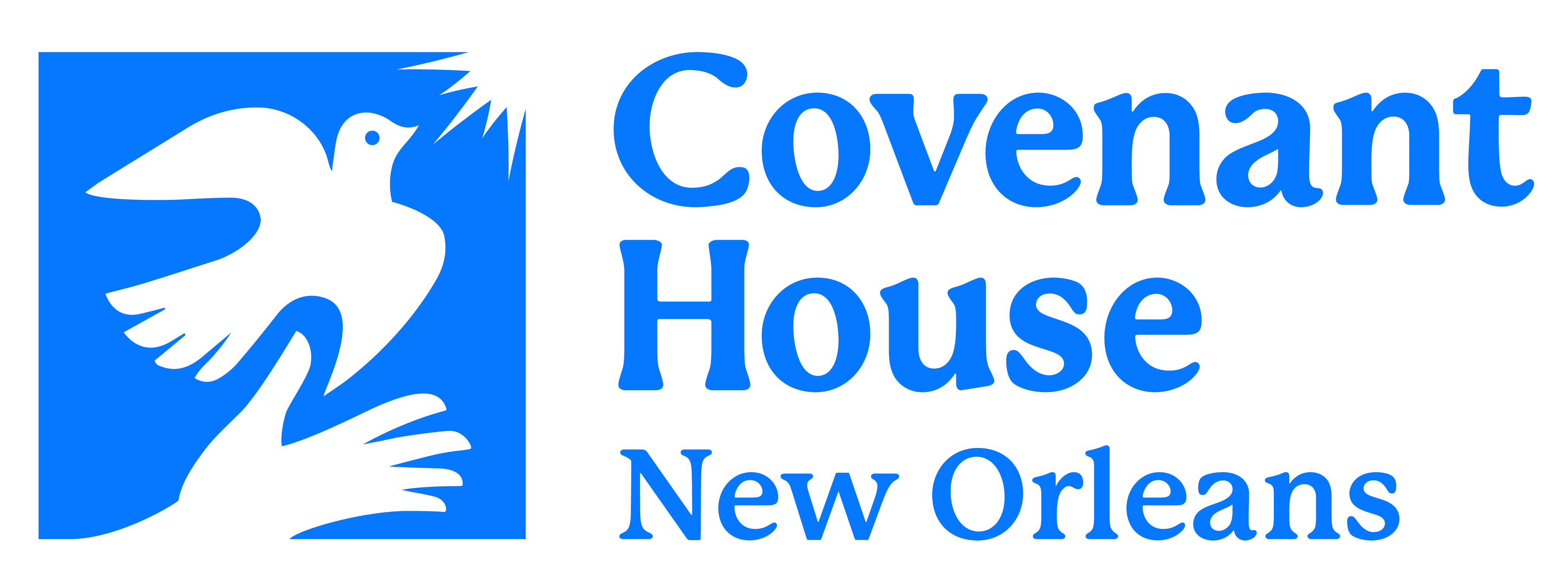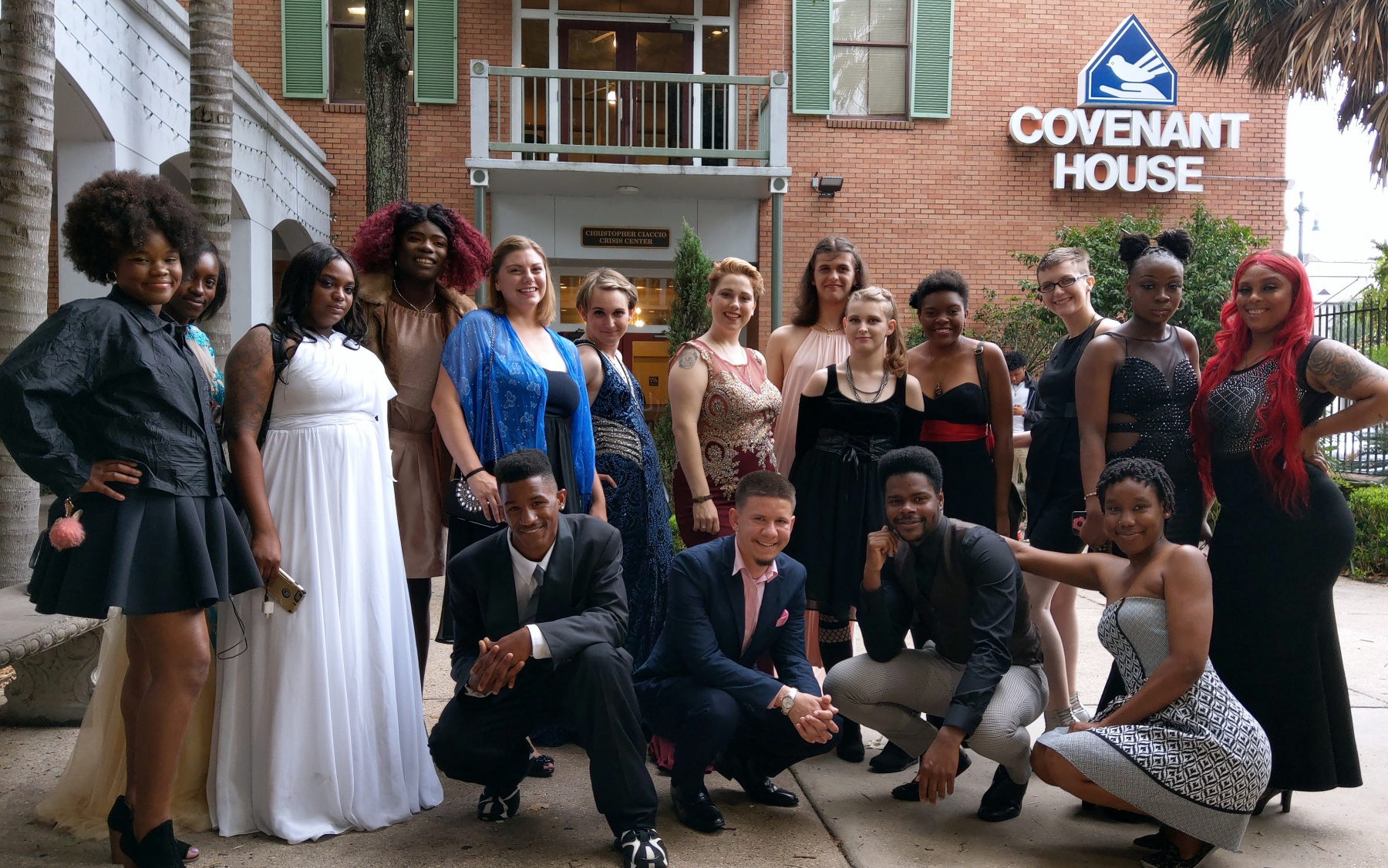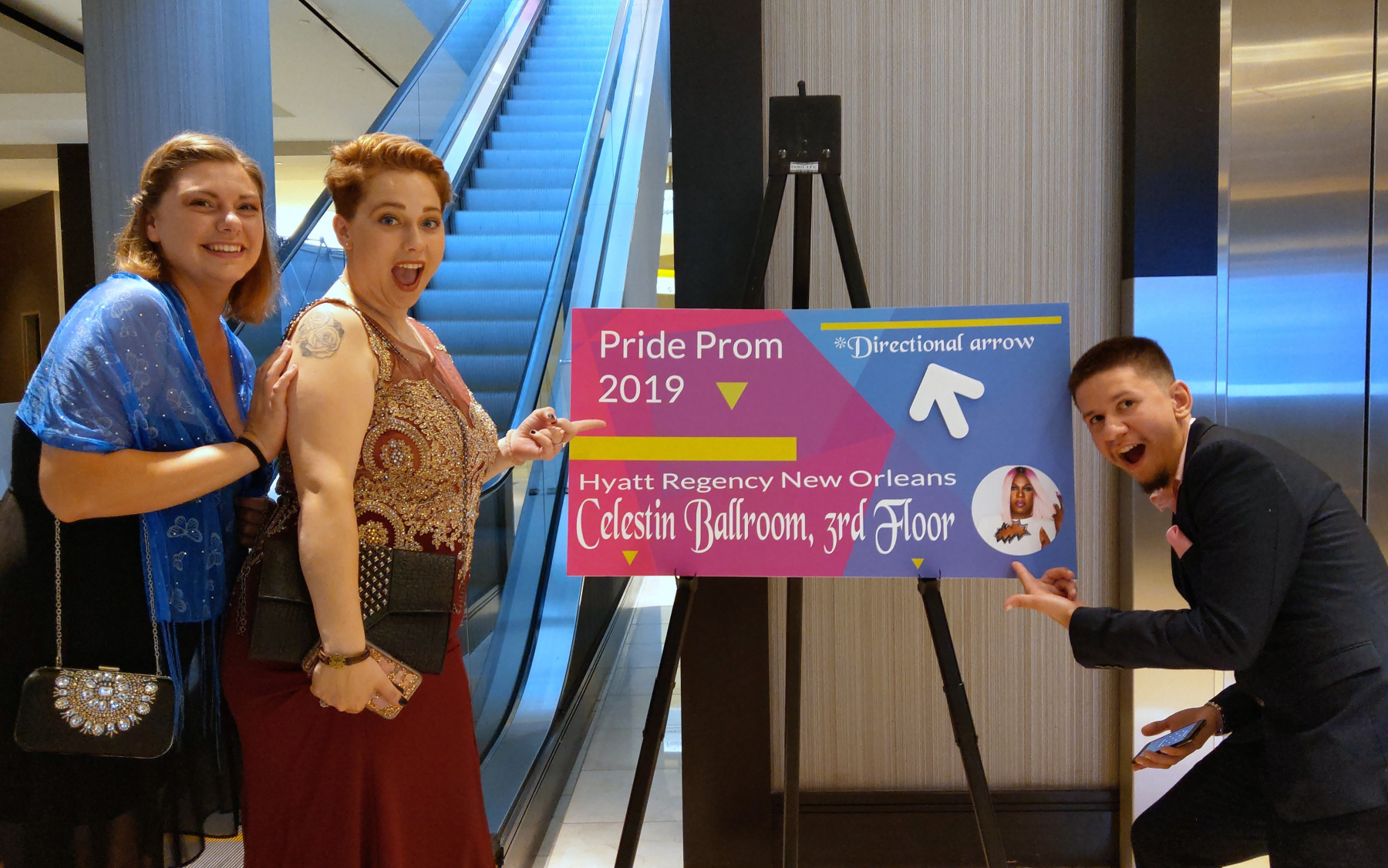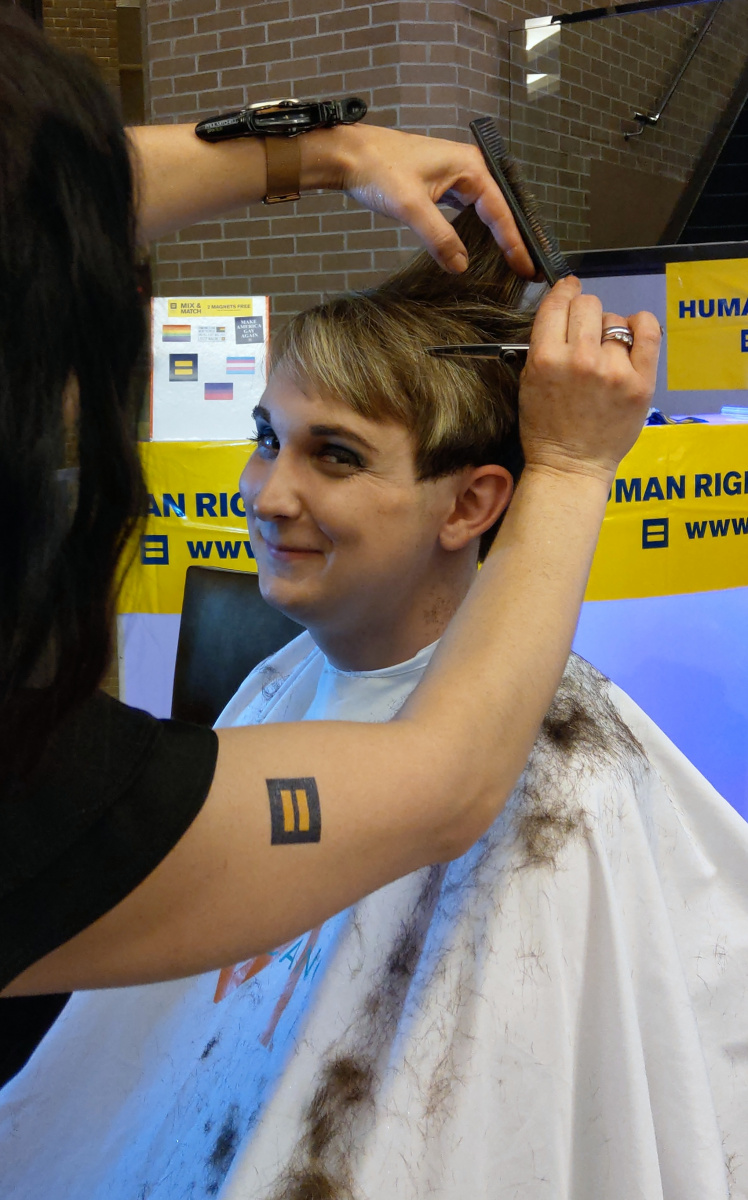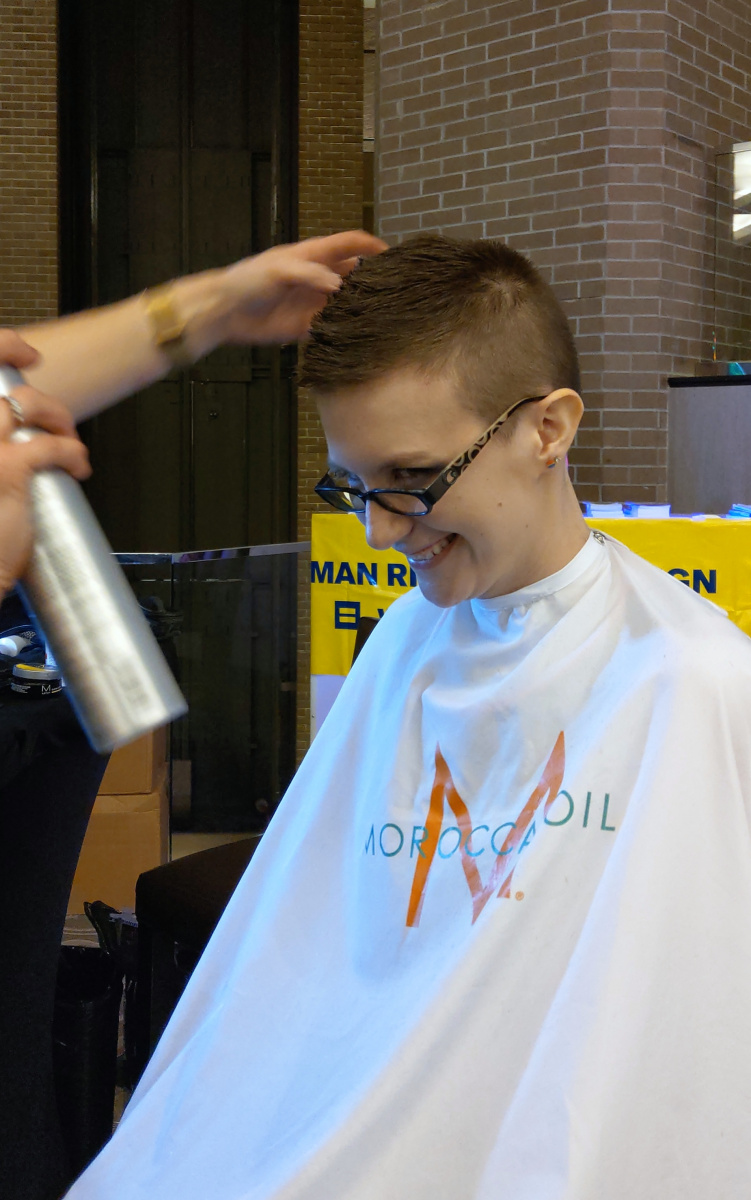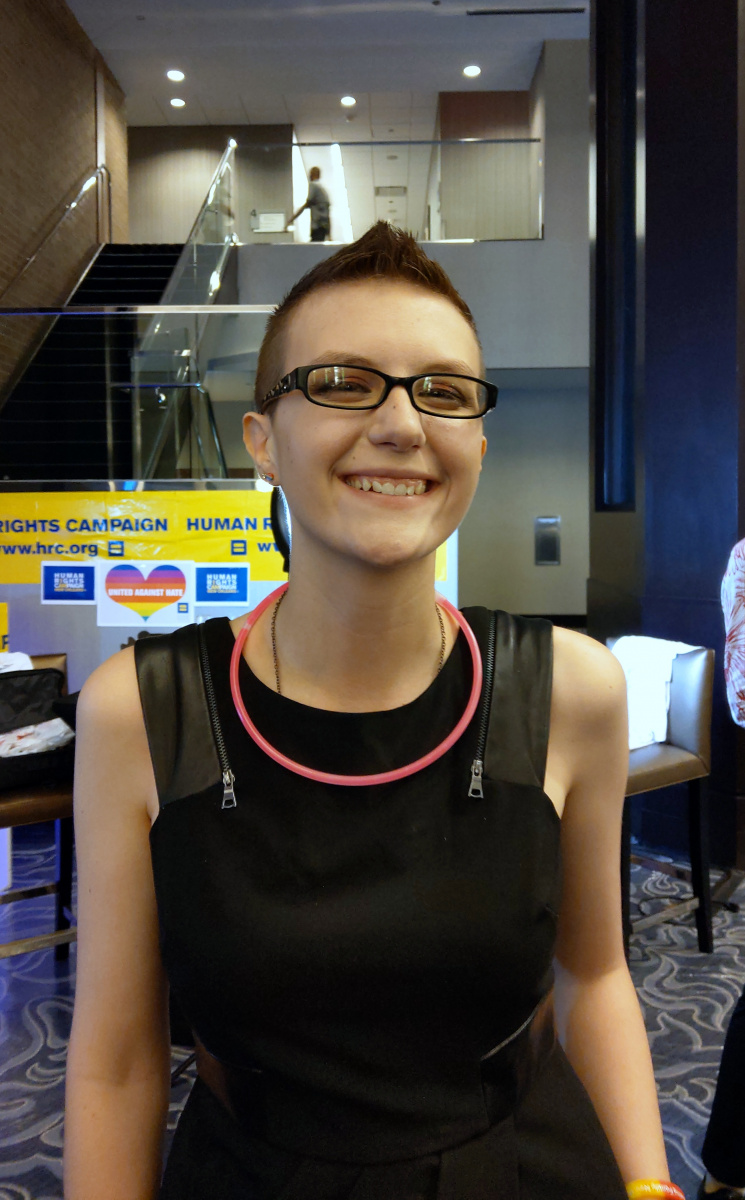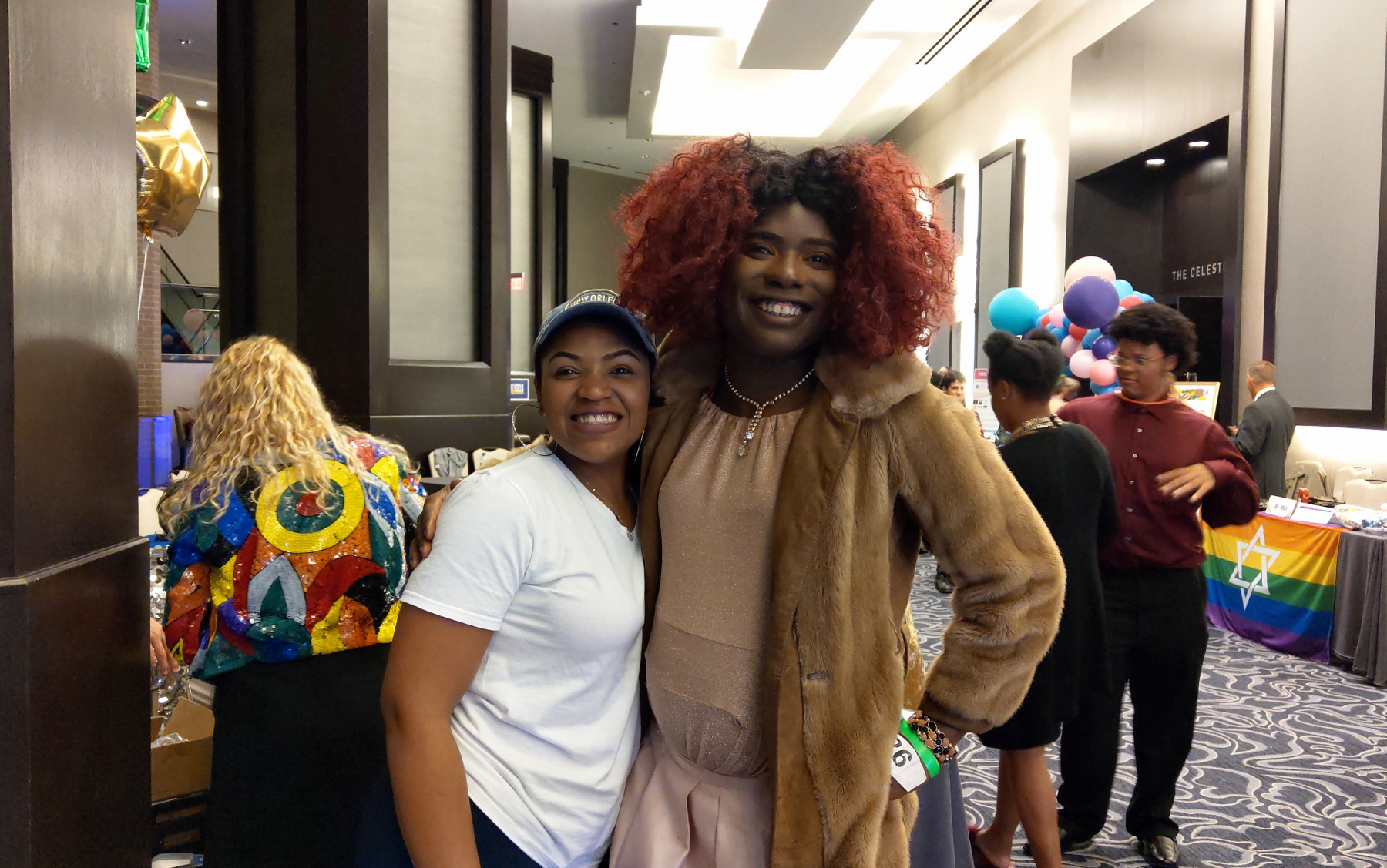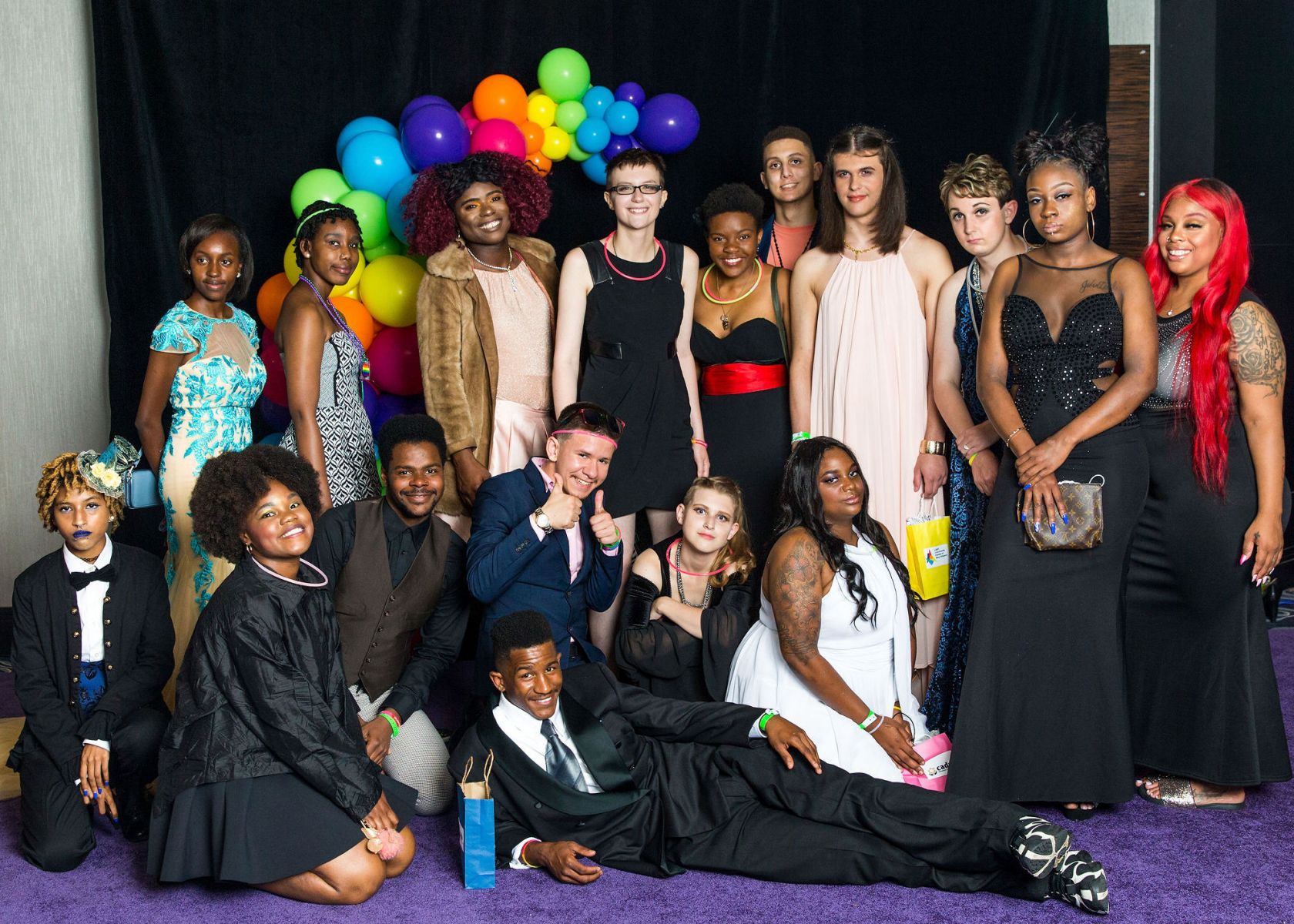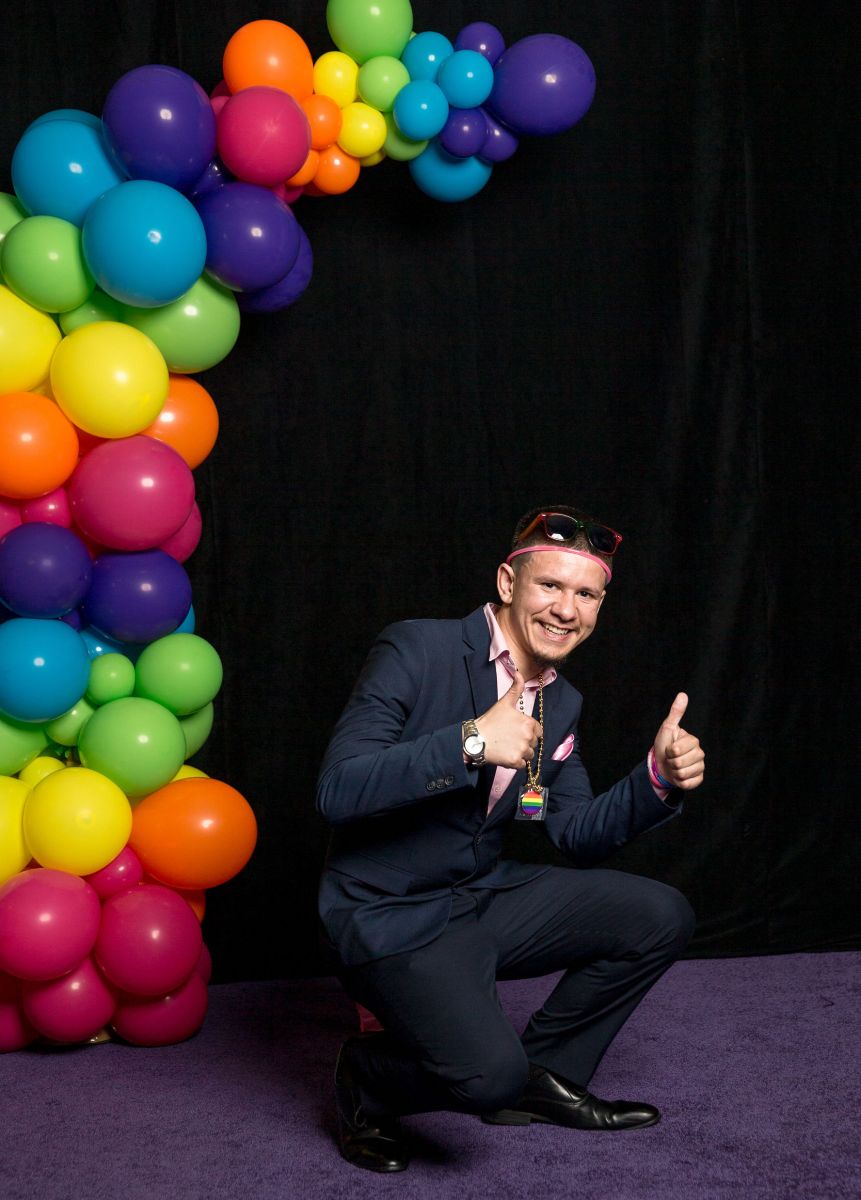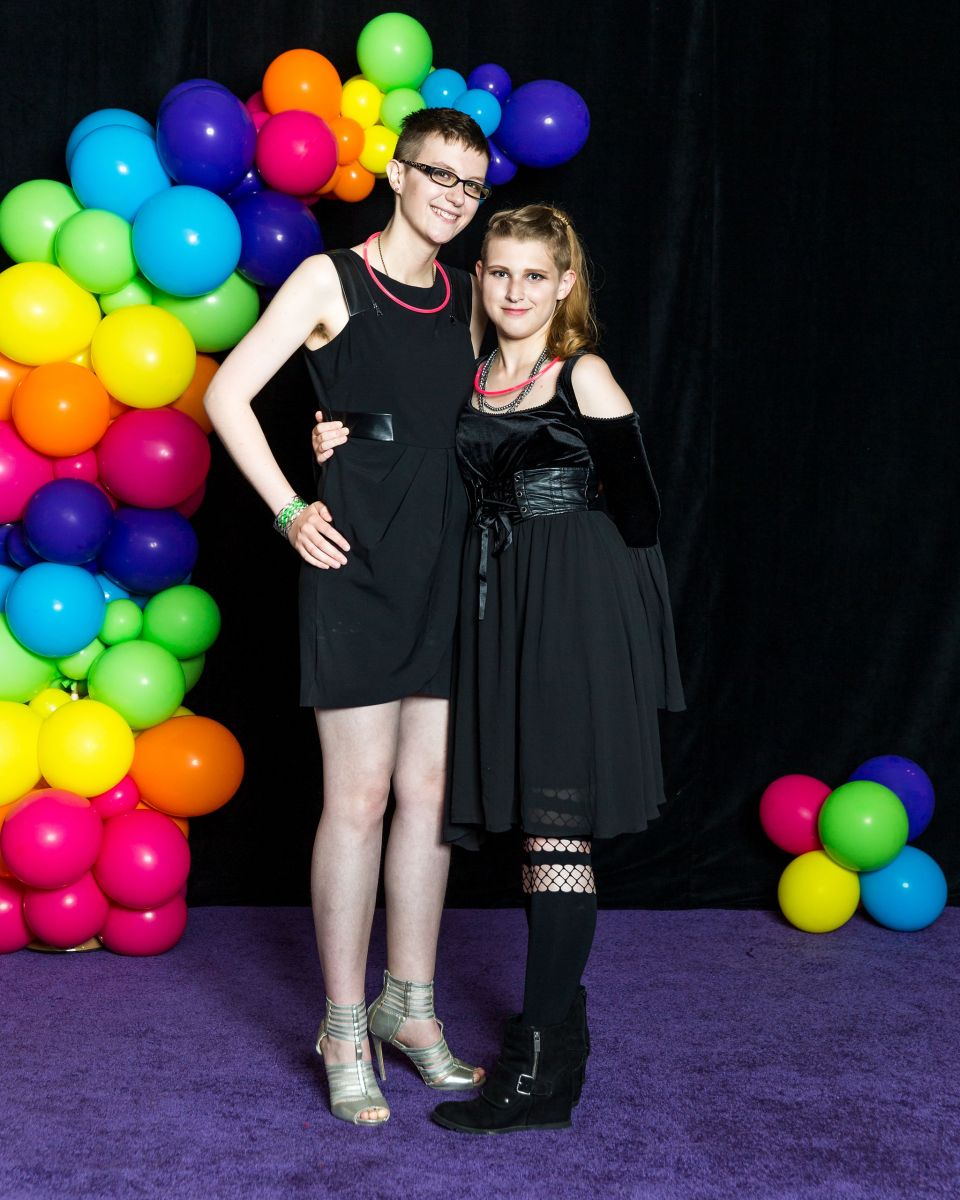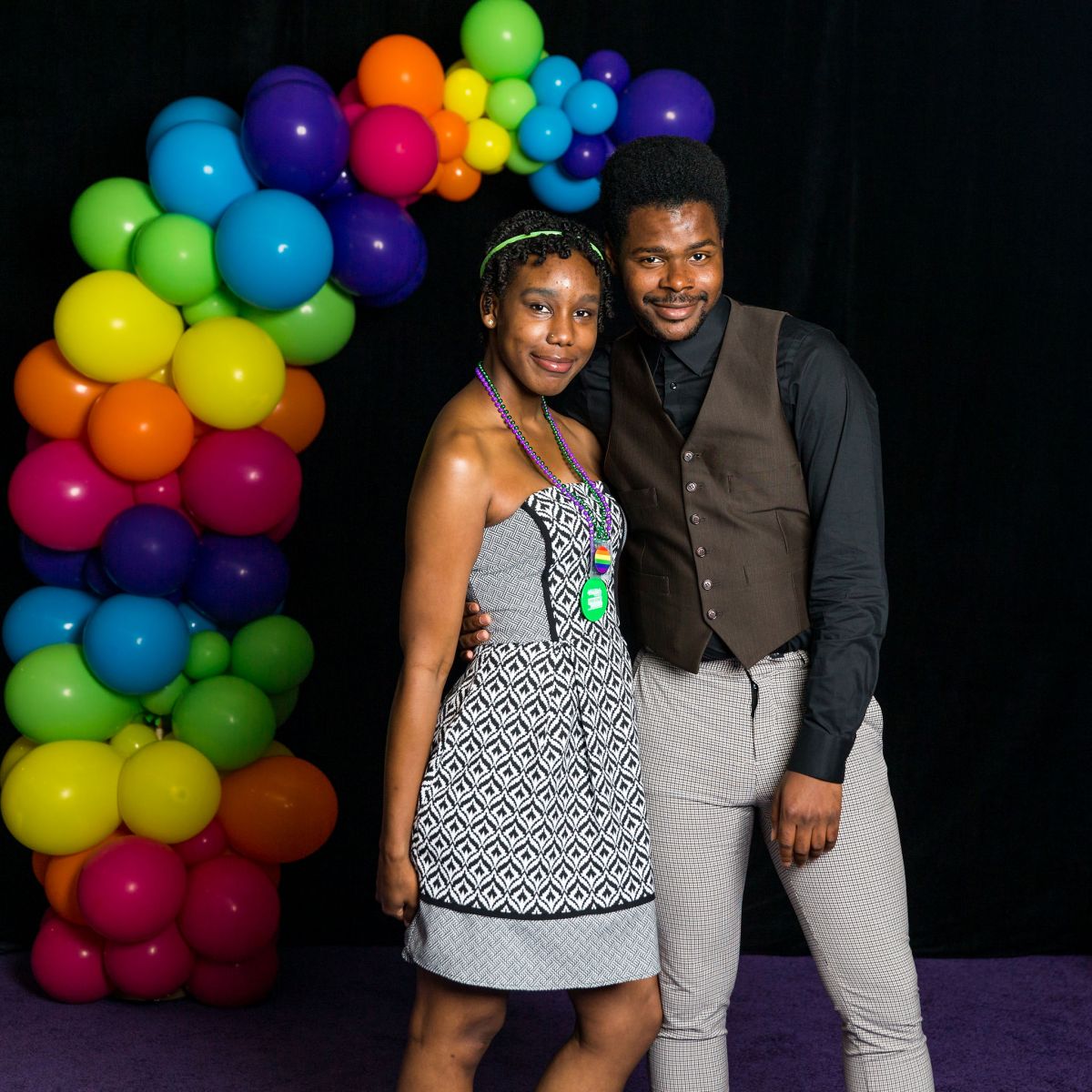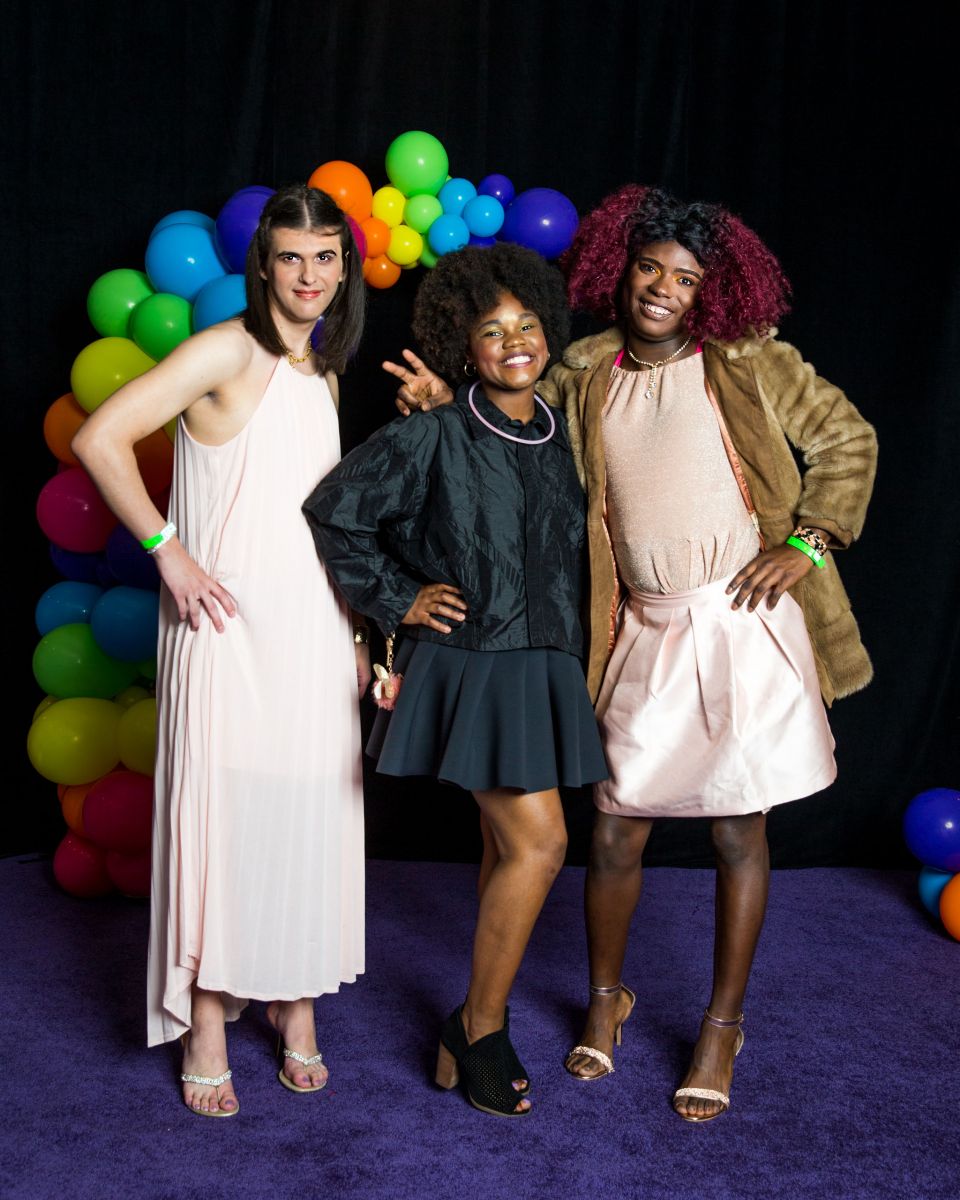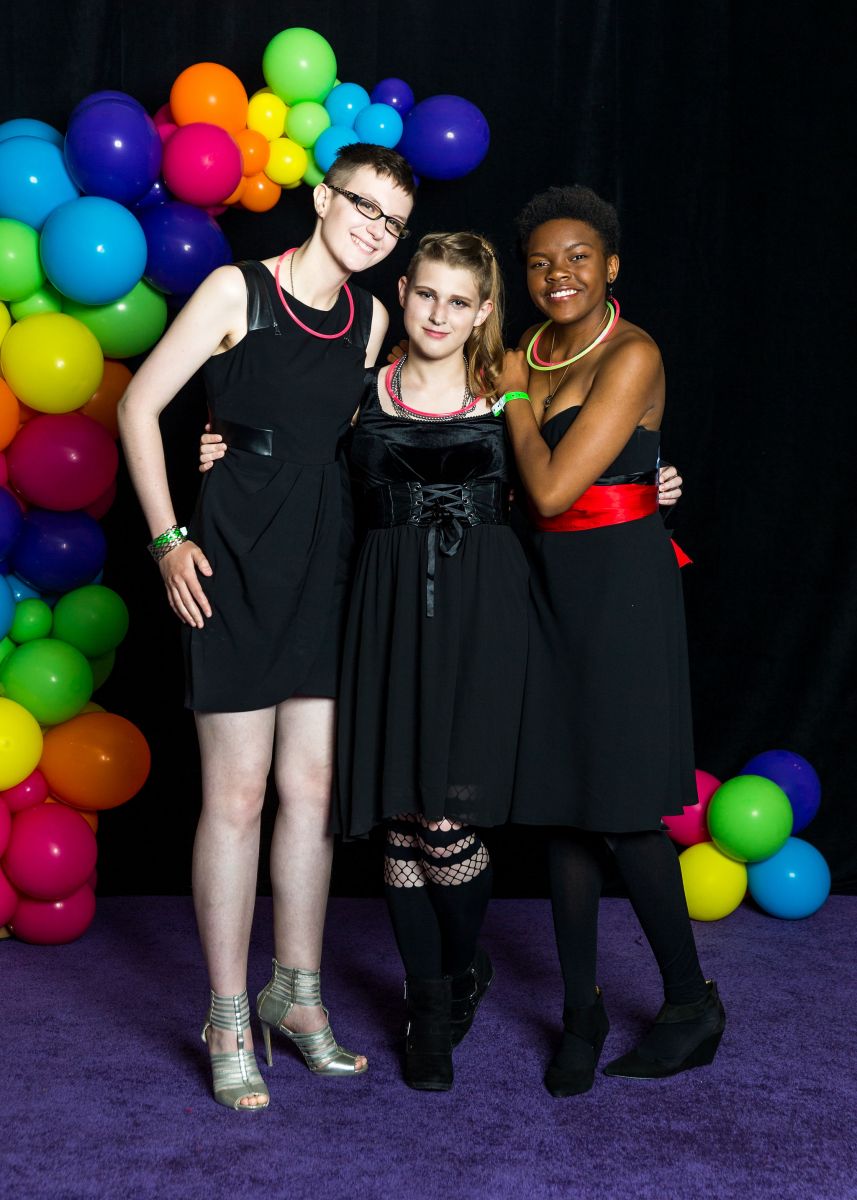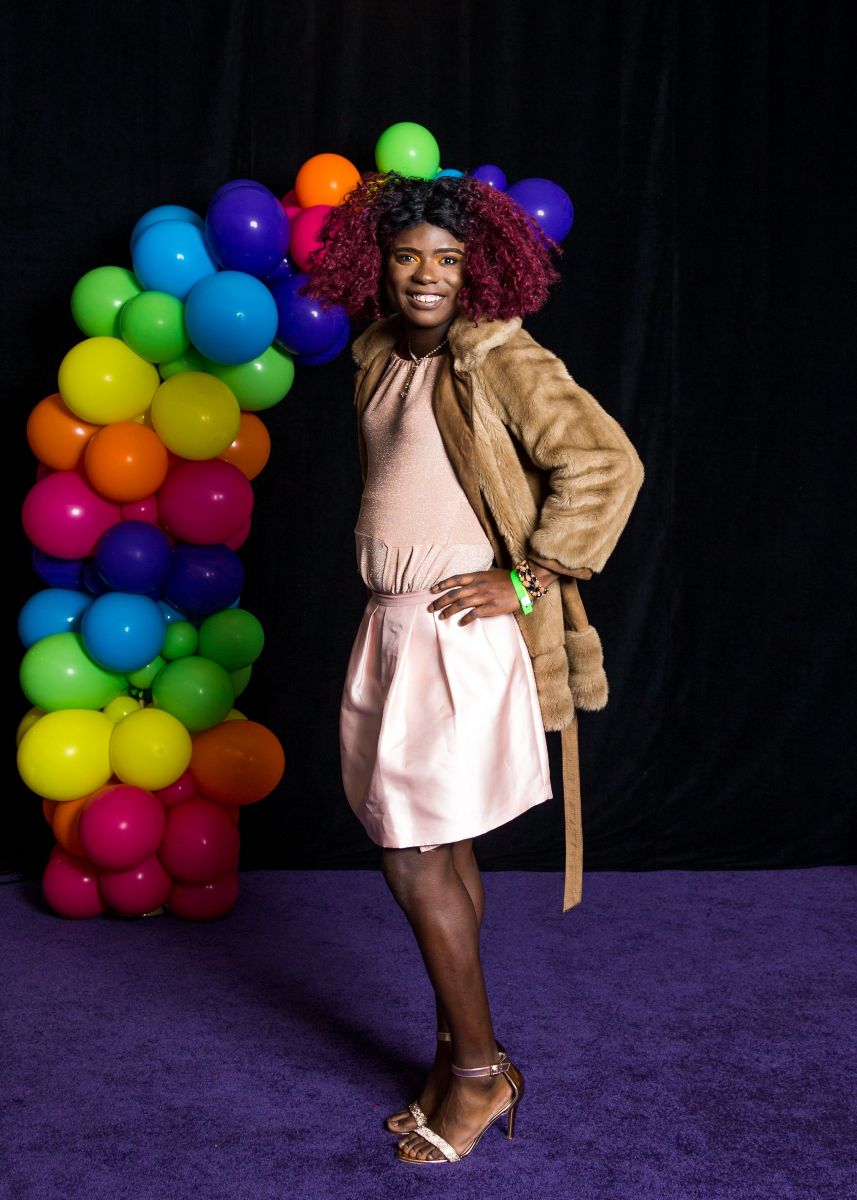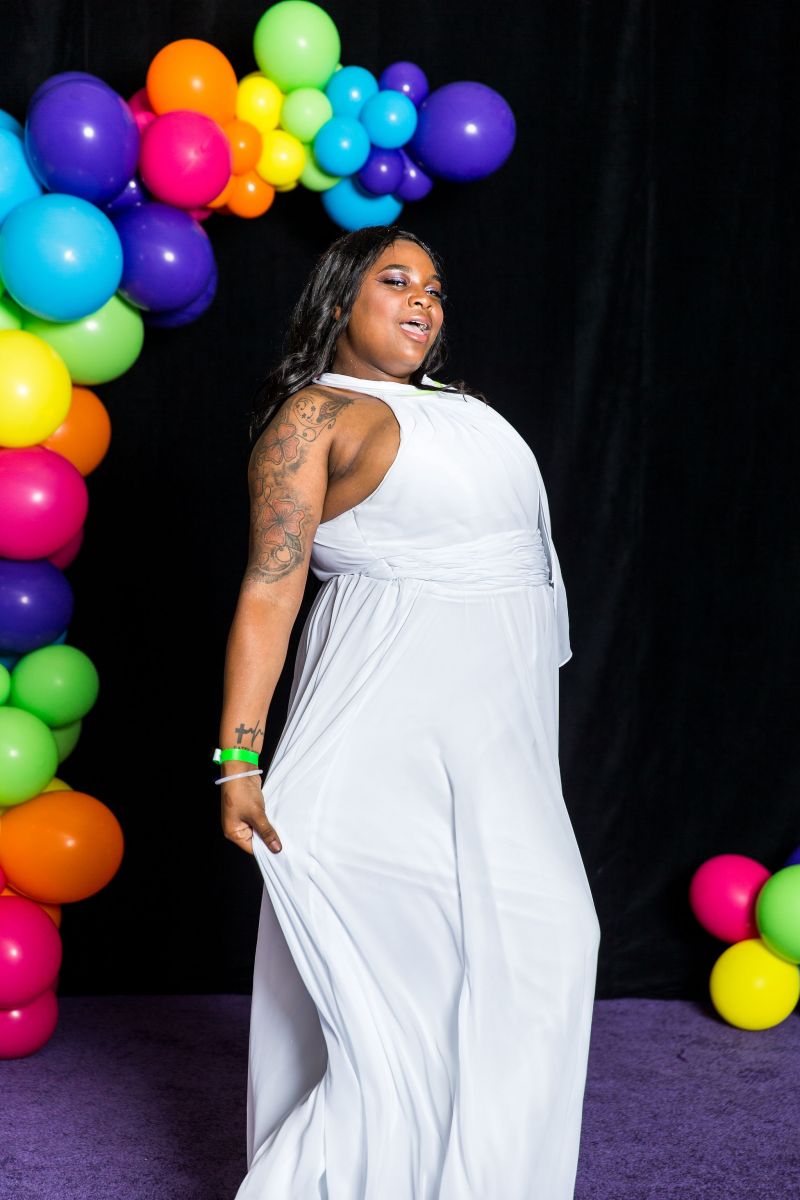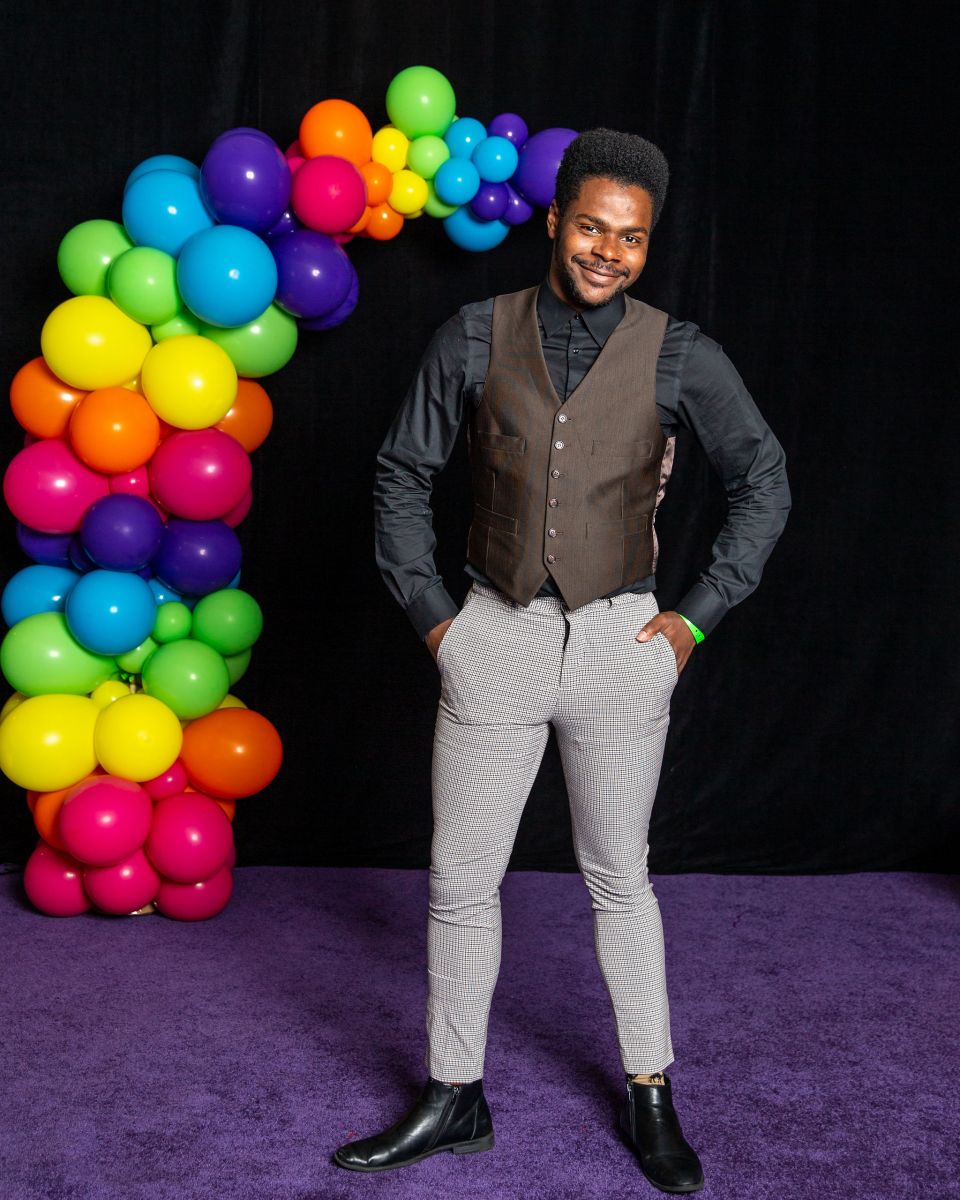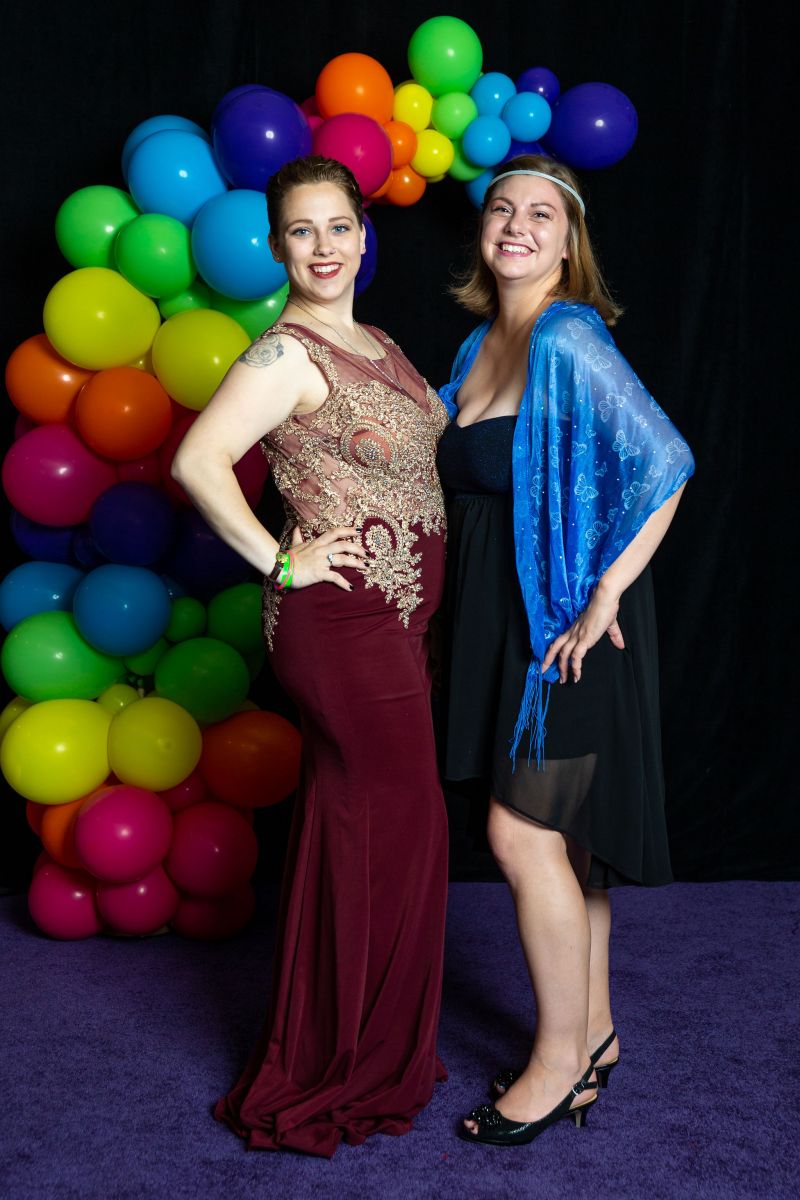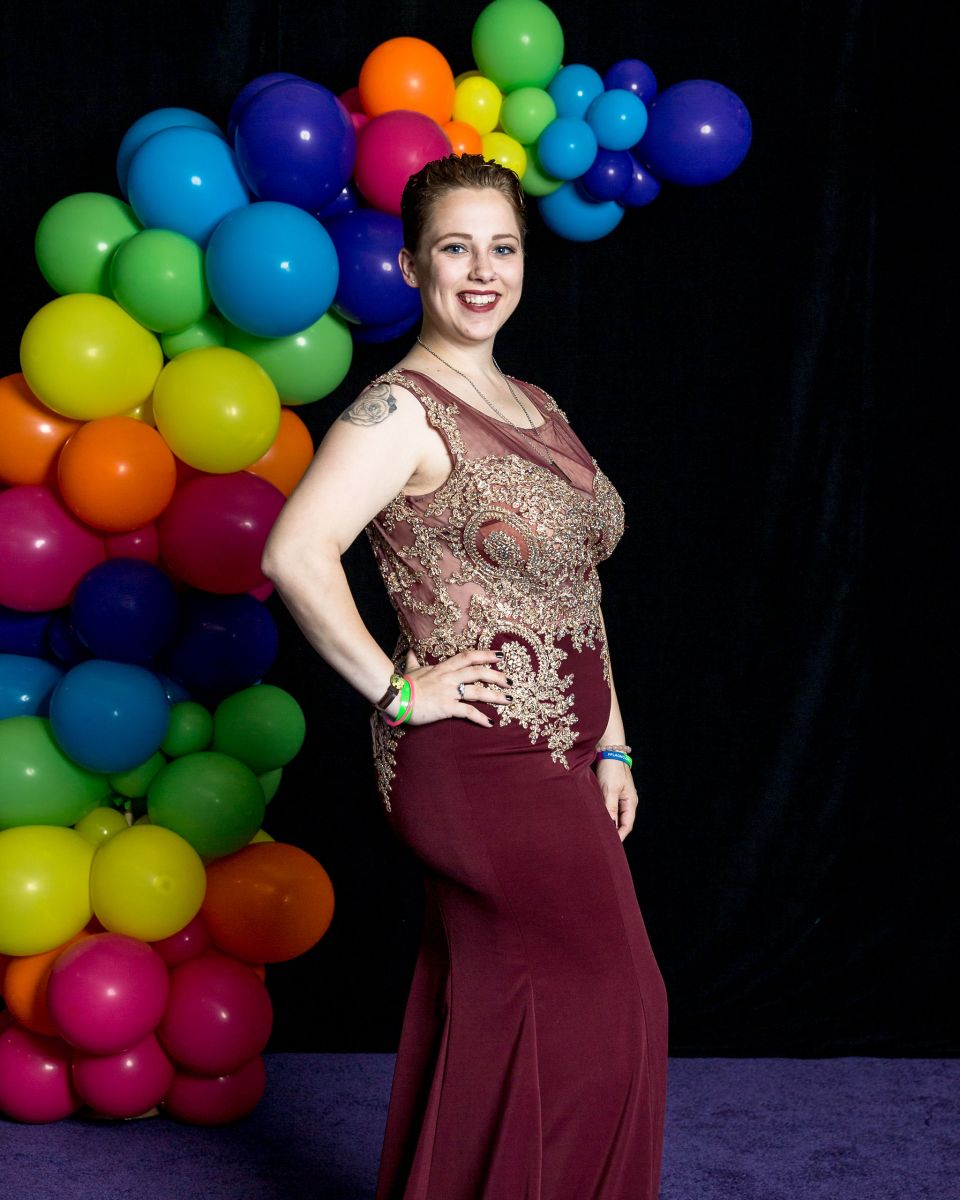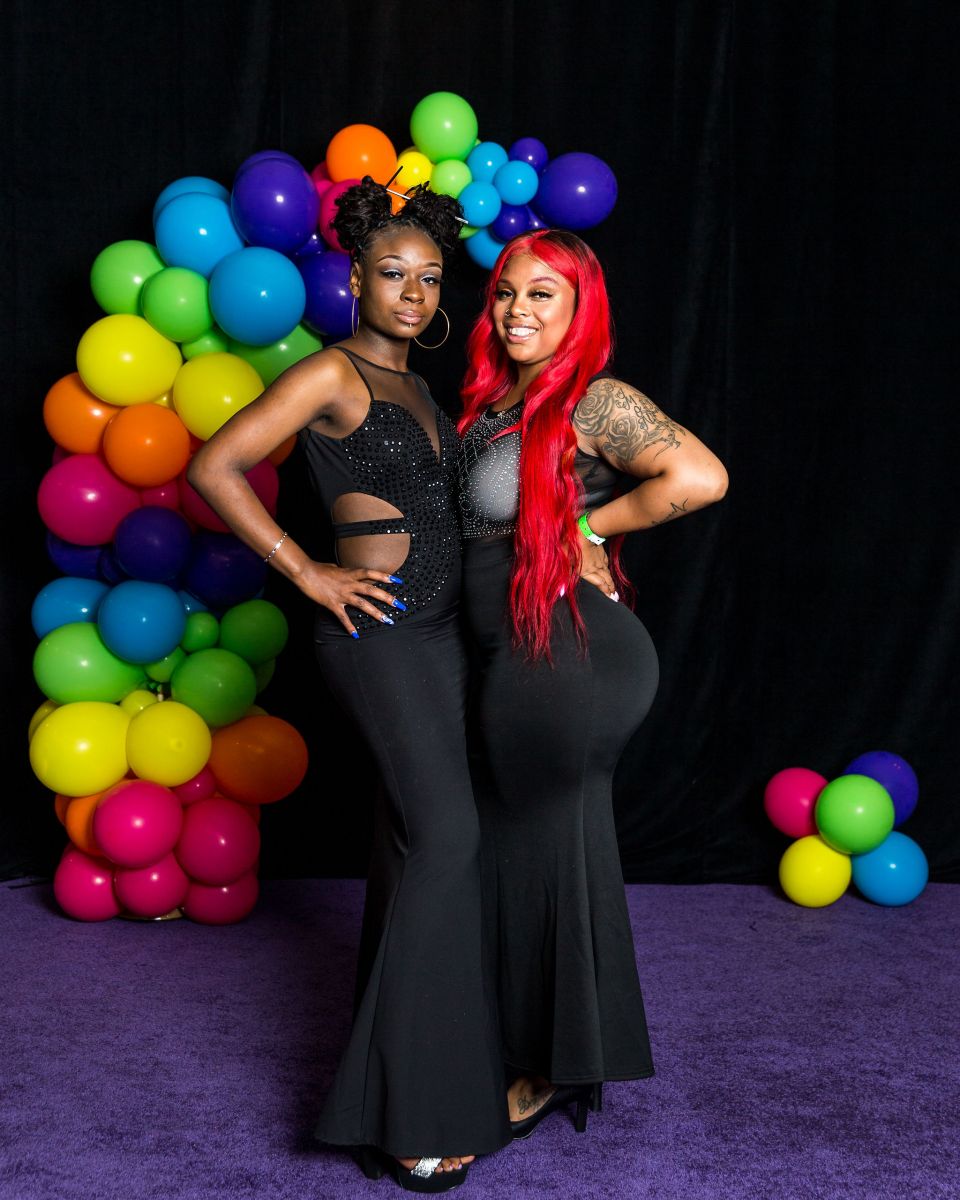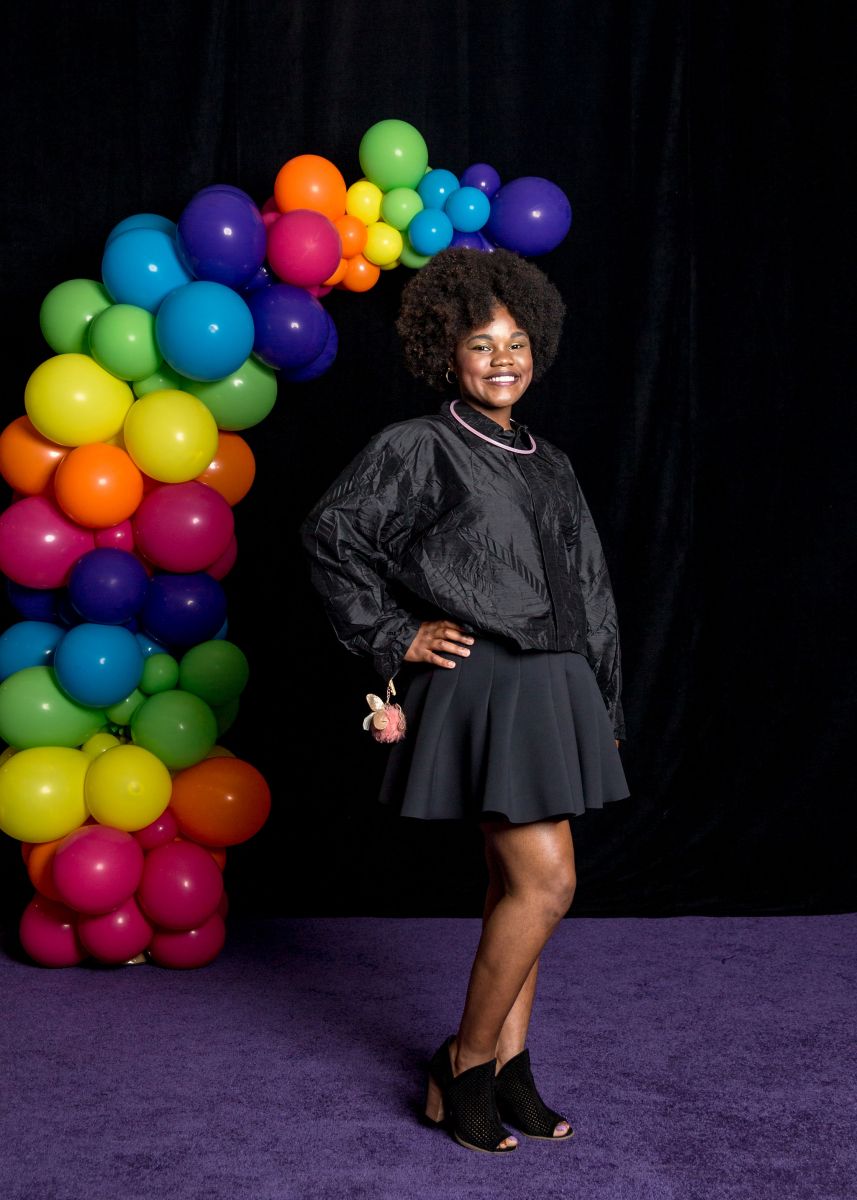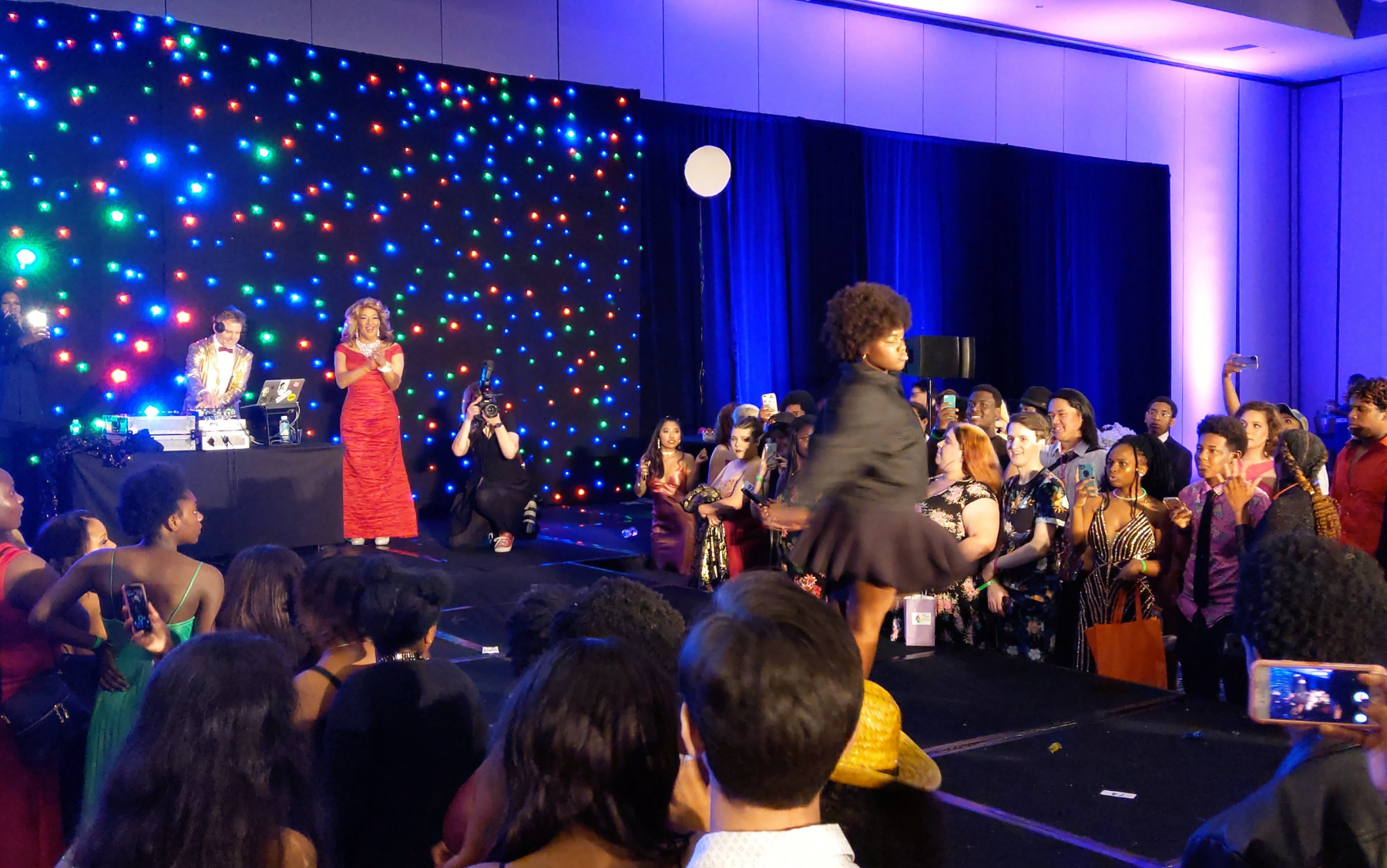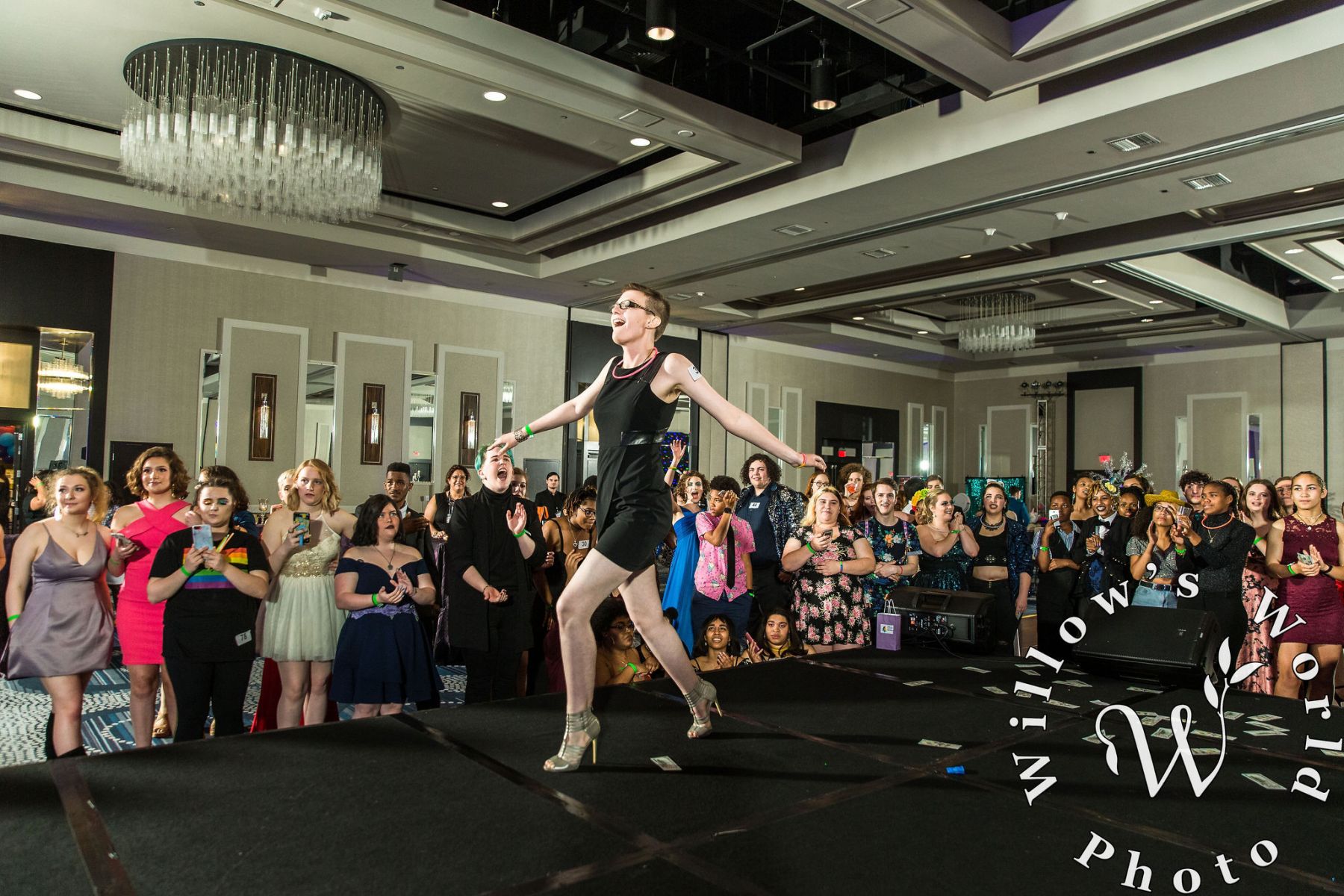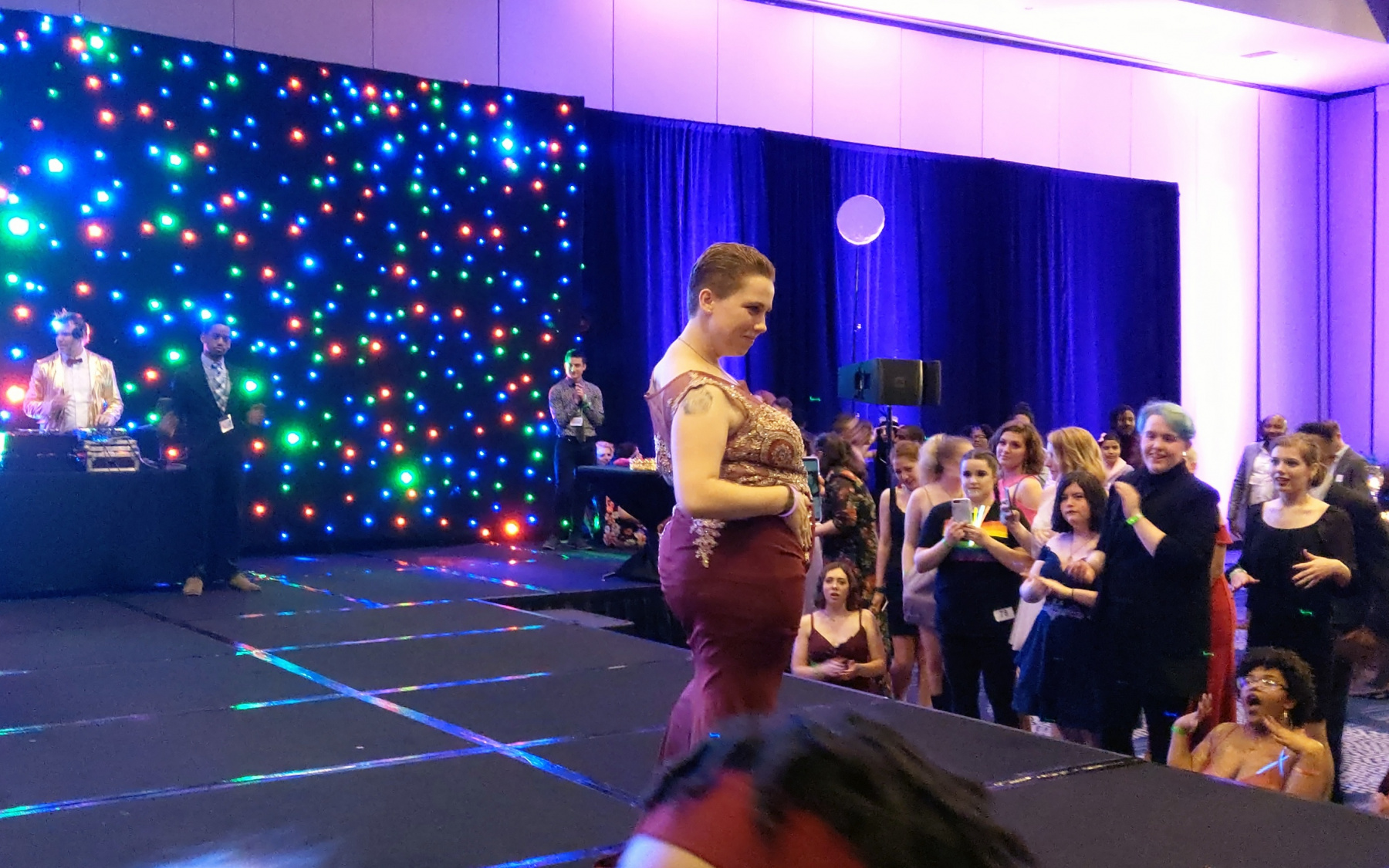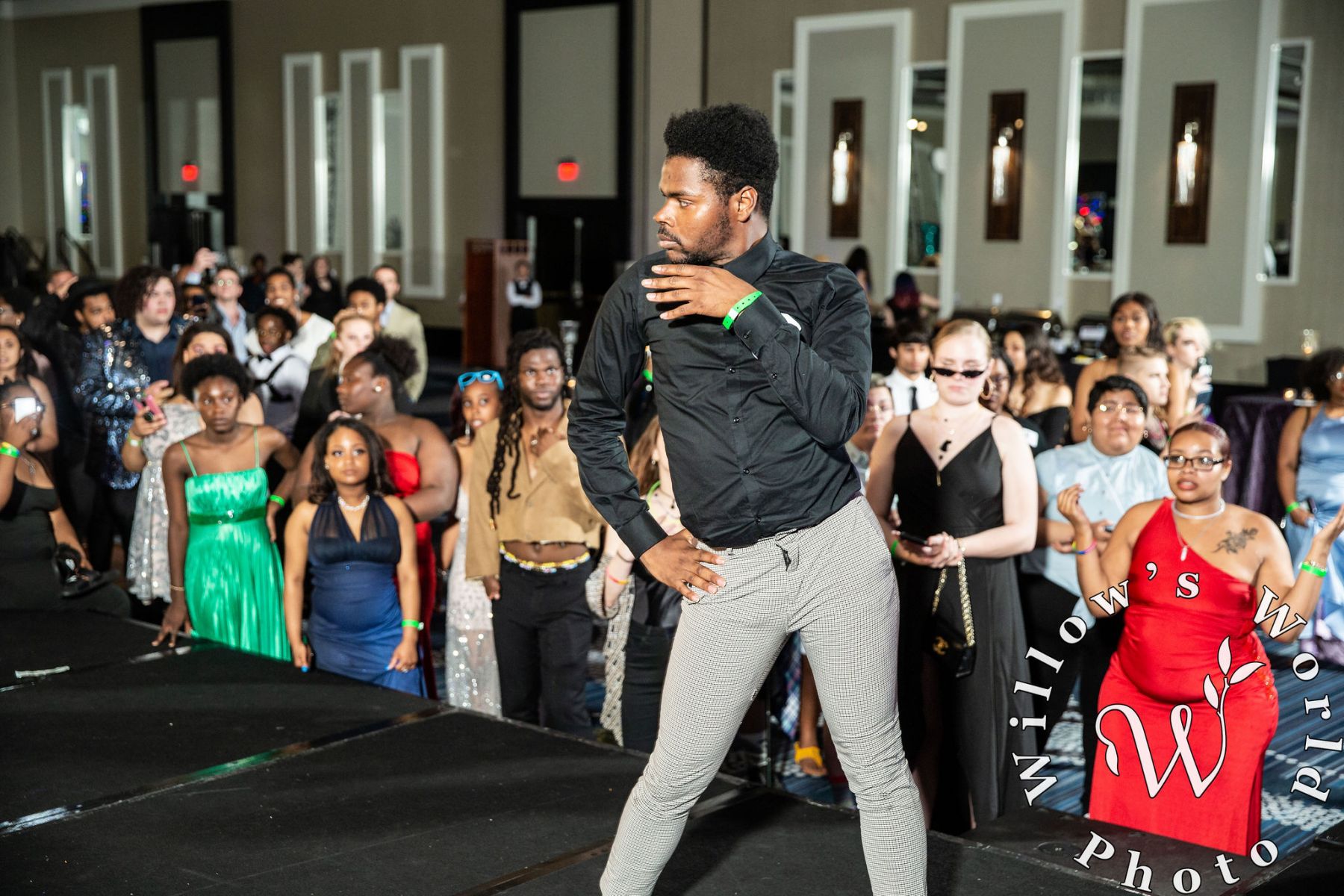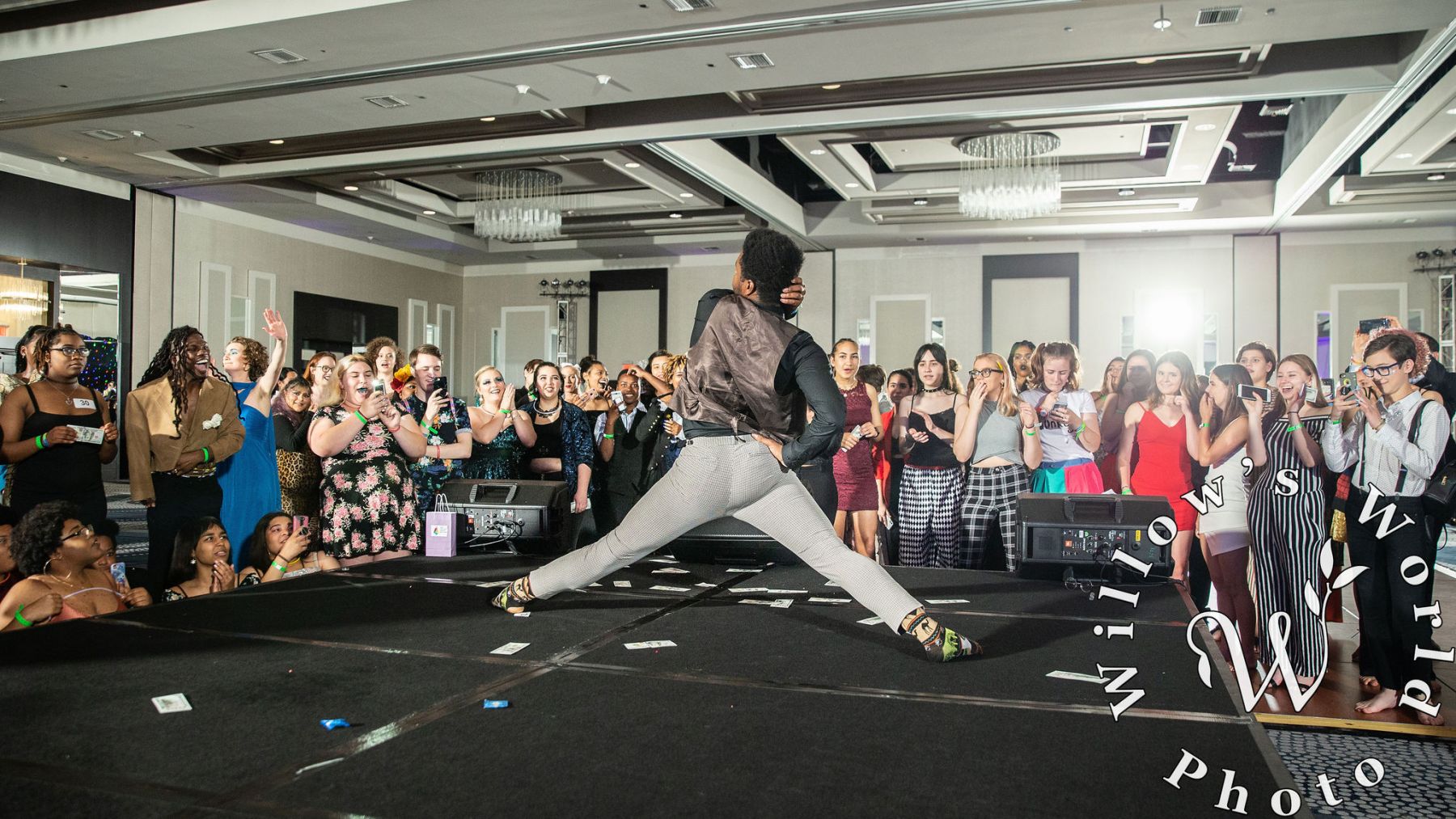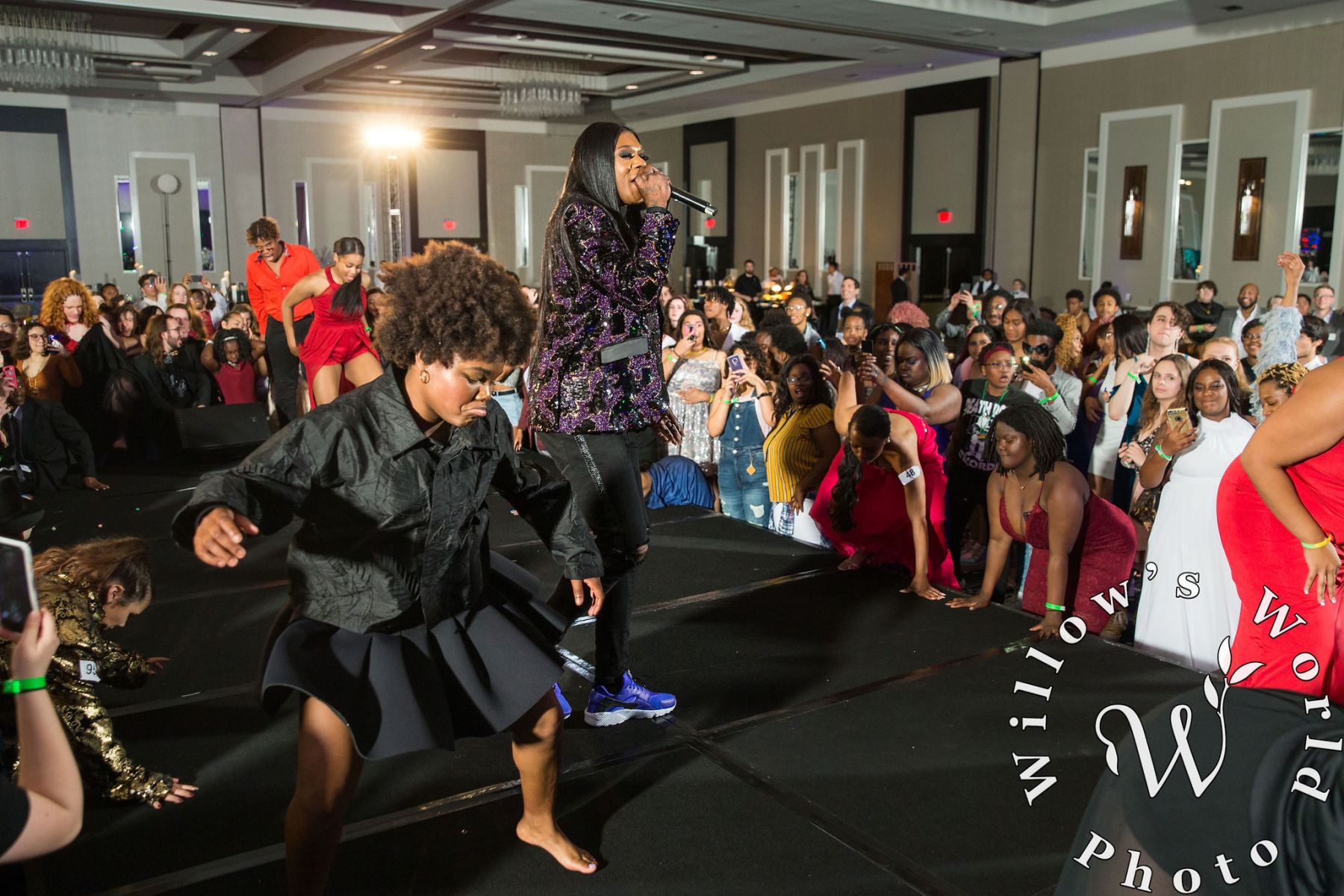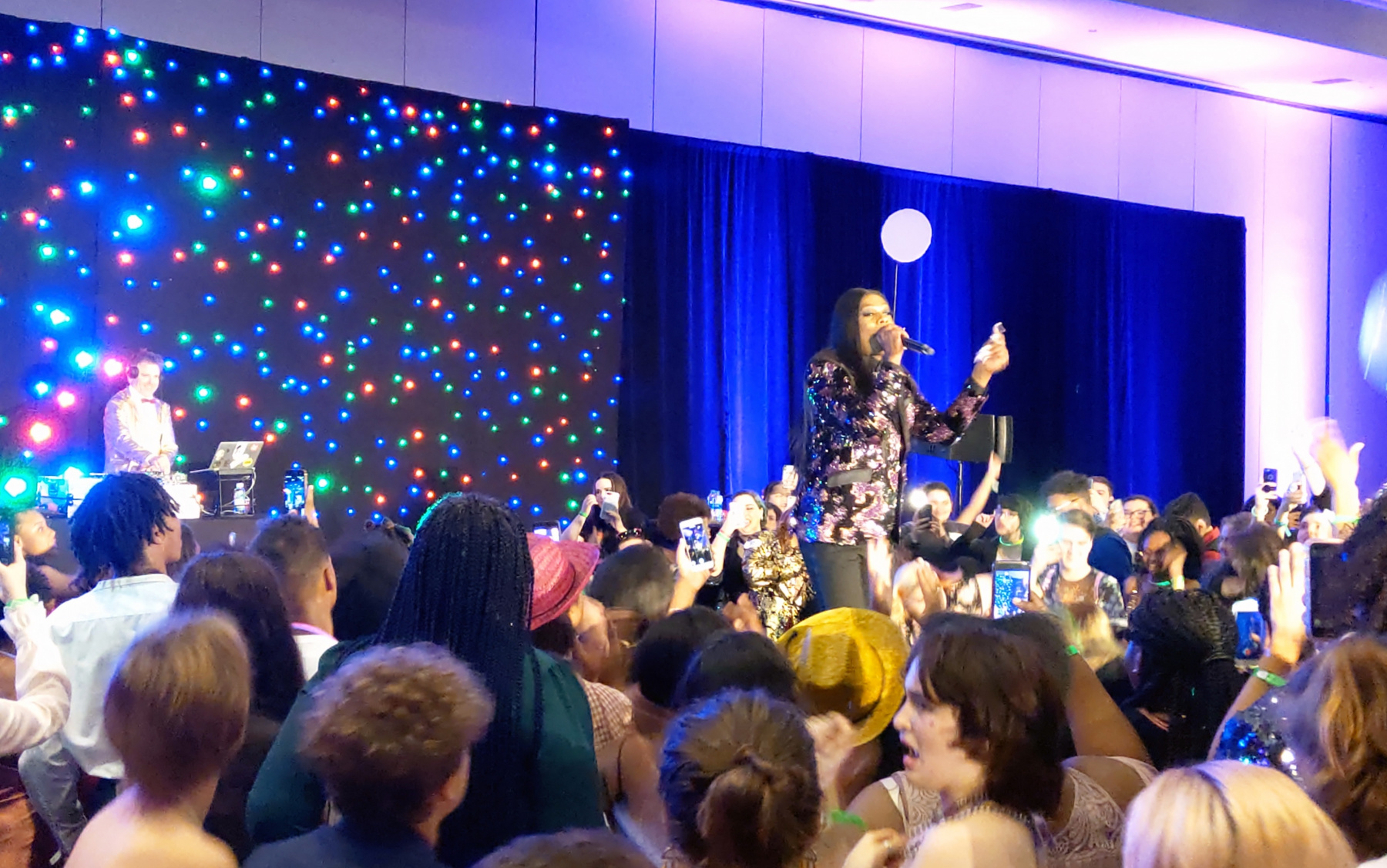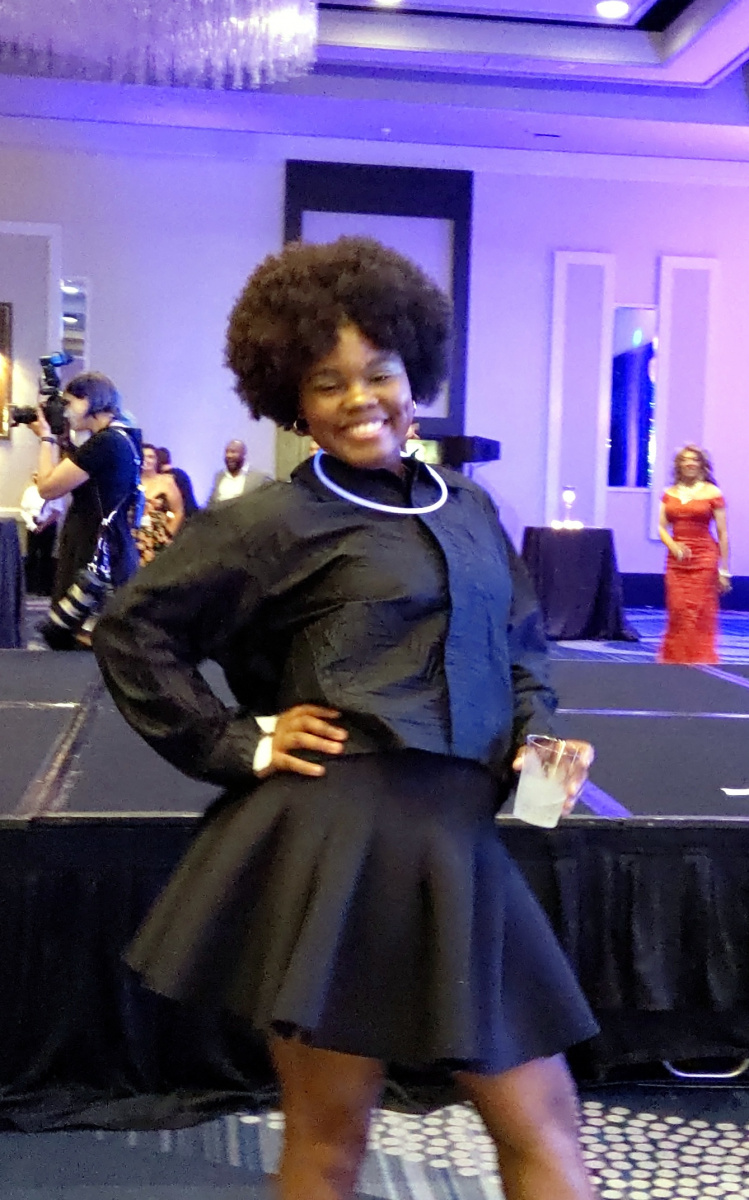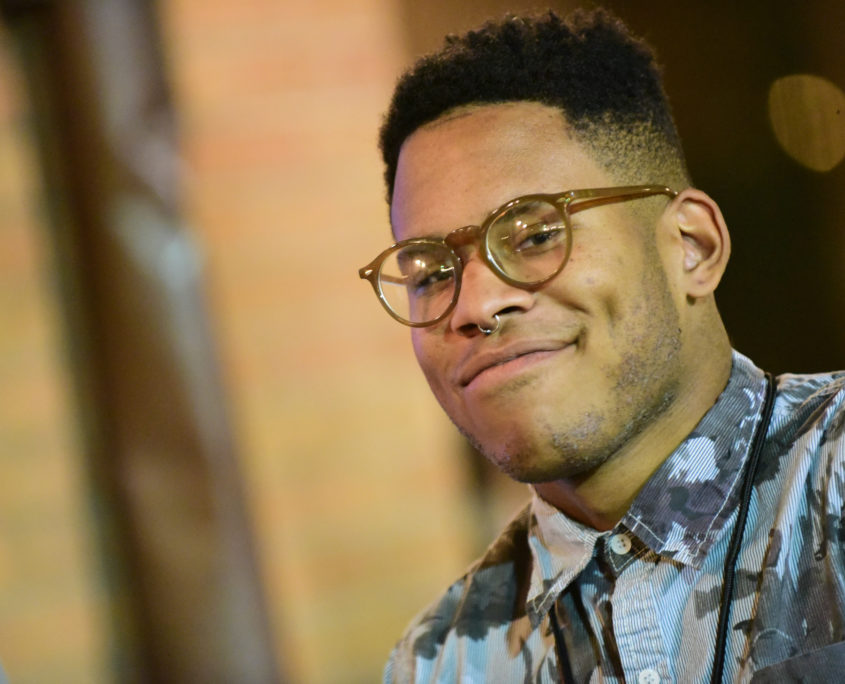CHNOLA offers all youth, regardless of gender identity or sexual orientation, a safe and loving home.
Youth who identify as lesbian, gay, bisexual, transgender, or queer/questioning are at much greater risk of becoming homeless than their non-LGBTQ+ peers. A groundbreaking study of youth homelessness in the United States in 2017 by Chapin Hall of the University of Chicago says their risk of homelessness is 120% higher than that of their peers. Another study (True Colors United) says that LGBTQ+ youth comprise 40% of all youth experiencing homelessness.
LGBTQ+ youth also face, among all young people experiencing homelessness, greater risk of “high levels of hardship,” according to a follow-up report by Chapin Hall in 2018. Hardship includes higher rates of assault, trauma, exchanging sex for basic needs, and early death. It notes that Black LGBTQ+ youth, particularly young men, have the highest rates of homelessness.
In 2014, Covenant House collaborated with True Colors United, an organization dedicated to ending LGBTQ+ youth homelessness, to roll out a pioneering resource, the True Colors Inclusion Assessment. The assessment was designed by True Colors United to help agencies implement best practices to welcome and serve LGBTQ+ youth. The tool measures the inclusivity of an agency’s policies, practices, physical space, and programs, using information gleaned from anonymous surveys of youth and staff. Based on the assessment’s outcome, the True Colors United team then guides the agency through the necessary steps to create a more LGBTQ+-inclusive and -affirming program.
Trauma-informed, Resilience-focused Approach to LGBTQ+ Homelessness
Youth who make their way to Covenant House do so bearing complex histories of trauma. Rejection by family and society put LGBTQ+ youth at greater risk of exploitation, trafficking, survival sex, physical violence, and suicide.
LGBTQ+ youth may avoid interacting with agencies that serve homeless youth for fear of rejection or discrimination. That’s why Covenant House prioritizes a safe, inclusive environment for all youth, regardless of their sexual orientation and gender identity. One-third of the young people we serve identify as LGBTQ+. We stress the importance of using a client’s chosen name and pronouns with all staff and volunteers. Doing so is in itself an act of suicide prevention, according to recent research by University of Texas.
Many Covenant House staff members attend trainings by True Colors United. We sponsor events such as Pride Prom to encourage our young people to embrace all aspects of their identities. Our youth attend community Pride events, and we tailor our wellness programs to meet the specific needs of our LGBTQ+ youth.
In partnership with Dr. Kenneth Ginsburg — specialist in adolescent medicine at The Children’s Hospital of Philadelphia, professor of pediatrics at the University of Pennsylvania School of Medicine, and medical director at Covenant House Pennsylvania — Covenant House is developing a trauma-informed, resilience-focused approach to supporting and engaging the youth in our houses. Our approach, informed by the Reaching Teens model, trains our staff in core competencies such as understanding trauma, stress management and coping, restoring a young person’s sense of control, and reducing shame and stigma, among others.
This approach, together with the awareness we have raised among staff to ensure a welcoming, affirming, and safe space for LGBTQ+ youth, distinguishes Covenant House as a provider of shelter that addresses the whole person, with all of that young person’s experience and potential.
LGBTQ+ Homelessness and Diversity: All Are Welcome Here
As noted above, most LGBTQ+ youth access services from non-LGBTQ+-specific agencies, according to True Colors United and The Williams Institute. At Covenant House, we pride ourselves on the diversity of our youth and the staff who welcome and serve them. We are not a niche shelter that welcomes only youth of one gender, one orientation, one race, or one class. All are welcome here and all are received with absolute respect and unconditional love.
“I told my parents that I liked guys when I was thirteen years old. It ended with my dad threatening me, so I stayed with friends and other families – over and over – until I found Covenant House… [Now,] one of the reasons I want to do music is because I want to be able to communicate everything that I’ve been through in an effective way. I want my music and writing to convey self-perseverance and progression. I’m all about moving forward.”
![]()
Gery,
Former Resident,
Covenant House
New Orleans
At Covenant House, diversity and inclusion don’t end at intake. Our youth share dormitories, dining tables, and classrooms. They share in the same opportunities for entertainment, self-improvement, worship, exercise, counseling, field trips, creative workshops, and other activities.
We strive to build inclusion at Covenant House. Our residents are, indeed, a microcosm of the surrounding society. As our youth progress toward their goal of independent living, we hope they will take with them a lifelong, deepened understanding and respect for one another.
Resources and data
“Youth Homelessness in America: National Estimates,” Voices of Youth Count, Chapin Hall, University of Chicago, 2017
“LGBTQ Youth Homelessness in America,” 2018
“Without a Home: The National Youth Homelessness Survey,” 2016
How you can help
For more information on the LGBTQ+ community at Covenant House New Orleans, please contact volunteernola@covenanthouse.org.
